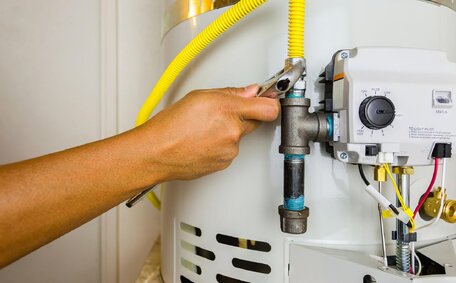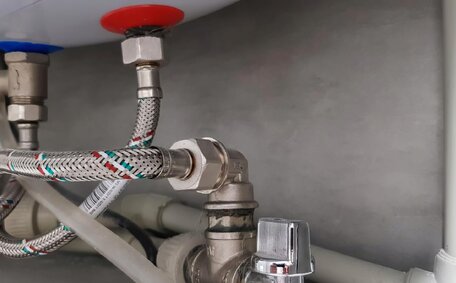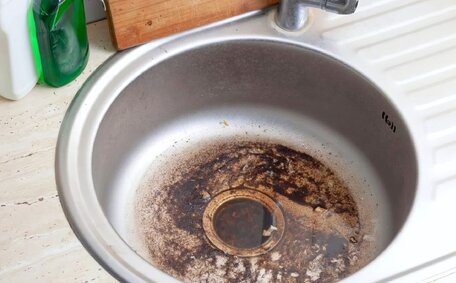An efficient, reliable hot water system is vital for home comfort and utility. Homeowners often debate whether to install gas water heaters vs electric models when looking to replace or upgrade their existing unit. This is an important decision that can impact your home’s hot water supply, energy efficiency, and running costs over time.
Our Castle Hill Plumbing team, with over a decade of service, offers profound knowledge in various water heater comparisons and installations. In this article, we explore the distinctions between gas and electric systems for effectively heating water in your home.
Comparing Installation Costs
Electric water systems generally have lower upfront installation costs, being less expensive and easier to install than gas systems.
You may also need to factor in costs for additional electrical works if your home’s power supply and circuit board require upgrades to support the load of an electric hot water system.
Gas water systems, though potentially more challenging to install due to unit cost and gas line requirements, present pros and cons worth considering. If your home doesn’t already have natural gas or LPG connected, you’ll need to consider the differences between natural gas LPG options and also pay connection costs and for tradespeople to install the gas line.
Gas hot water systems, on the other hand, range in price from approximately $1,000 to $3,500, with higher energy-rated models commanding premium prices.
When it comes to comparing installation costs for your hot water system, gas vs electric options often show gas being more expensive. However, gas electric water heaters can make up savings over time with lower running and operating costs. Consult our Castle Hill Plumbing experts for advice on which hot water system best meets your household’s needs.
Electric
Environmental Impact
Electric water heaters produce no onsite emissions since they run on mains electricity rather than burning natural gas. Nevertheless, the reliance of electricity generation on fossil fuels, and its contribution to climate change, affects their overall environmental efficiency.
Heat pumps, known for stellar energy efficiency, and solar systems, are formidable options for lessening environmental footprint. Heat pumps are more energy efficient than conventional units, they supply hot water by using renewable ambient energy and reducing electricity consumption by over 50%. Solar panels contribute to hot water solutions by harnessing the sun’s energy, which can provide zero-emissions water heating during daylight hours.
Ultimately, if electricity were sourced from renewable energy, electric units would be greener; however, at present, gas hot water systems produce fewer indirect emissions overall in Australia.
Gas
Gas heaters for hot water directly emit greenhouse gases like carbon dioxide and nitric oxide during operation, contributing to climate change and air pollution. This occurs through the onsite burning of natural gas.
Modern gas hot water units are engineered with water efficiency in mind, therefore reducing environmental impact. The latest condensing models use around 20% less gas compared to outdated systems. New 5 and 6 star gas systems rank among the most efficient options in today’s market of hot water heaters.
Gas hot water systems remain a popular choice because these systems can offer lower operating costs and better reliability than electric units. Overall greenhouse emissions also depend on how the electricity grid is powering electric hot water systems. Speak to our Castle Hill Plumbing team about which one is your best and greenest hot water options.
Operating and Energy Efficiency
Electric
Electric water heaters with updated technology can reach impressive levels of energy efficiency. Conventional electric storage water heaters convert about 75% of the electricity into usable heat for water heating. They lose efficiency over time as mineral deposits build up, potentially affecting the supply hot water and increasing your monthly energy bills.
Current heat pump systems are more than three times as efficient, utilising renewable thermal energy. Although more expensive to install, heat pumps are a substantial energy saver, cutting down on energy and running costs over a lifespan of 15+ years.
Systems like solar electric hot water heaters harness the sun’s energy, delivering 'free’ hot water throughout the daylight hours. They ensure water even during power outages, requiring gas or electric boosting at other times. Across a year solar pre-heat systems reduce conventional water heating bills by 50-60%.
Gas
Modern tankless water heaters are highly energy efficient, with approximately 90% of gas use converted into water heating. The latest 5-6 star storage tank systems and instant gas options include efficient burner and heat exchanger technology.
Conventional gas systems last around 10 years on average. New condensing models have improved 12-15 year lifespans, longer warranties and lower operating costs. The energy savings they offer can compensate for their higher initial purchase costs over an extended period.
Gas systems typically outperform electric water storage units in terms of heating efficiency. But renewable technologies like heat pumps and solar electric give electric systems an efficiency advantage in the debate of gas vs electric water heaters.
Maintenance Requirements
Regular maintenance is necessary to sustain efficiency in electric hot water systems. This involves flushing the water tank annually to prevent sediment buildup, plus replacing any worn parts like heating elements and thermostats over the system’s lifespan.
Basic maintenance for your water heater system costs approximately $150-250 per year. Replacing components can add $200-600 over the typical 10 year lifespan of an electric storage unit. Keeping your electric system well-maintained saves energy and prolongs its working life.
Regular servicing of gas hot water systems is crucial every 1-2 years for optimal performance and safety. Licenced gas plumbers check gas pressures, connections for leaks, flue health, system efficiency and more. General servicing costs $250-350.
Systems using gas last 12-15 years on average with proper maintenance. Key parts like burners, gas control valves and heat exchangers may need replacing at extra cost leading up to the unit’s end of life. Keeping on top of maintenance checks saves gas usage and prevents more expensive repairs down the track.
Discuss with our Castle Hill Plumbing experts to tailor a maintenance plan for your water system. Regular servicing can extend the working life of your system, thus securing your investment and saving you money over time.
Environmental Impact
Adopting renewable energy sources can reduce the environmental footprint of electric systems, ensuring you choose the right hot technology for your household’s needs. Solar electric panels and hot water heat pumps provide emissions-free hot water heating solutions, effective during daylight hours. But even renewable electric units rely on gas or electric boosting at other times.
Instant electric heat pumps, using ambient heat, warm water effectively, slashing grid energy needs by over 50%.
Gas hot water systems emit carbon dioxide and other greenhouse gases directly onsite through burning natural gas. So while they heat water very efficiently, gas units have a larger direct carbon footprint.
However, new 5-6 star condensing gas systems are engineered for maximum efficiency, using around 20% less gas than older models. And with Australia’s electricity still predominantly coming from fossil fuels, the indirect emissions of electric hot water systems could outweigh the direct impacts of gas.
Selecting the most sustainable hot water system requires a balance between efficiency and emissions. In the gas versus electric hot water heater debate, modern units of both types offer distinct advantages and disadvantages. Consult our Castle Hill Plumbing team to understand your best hot water options.
Rebates and Incentives
There are few government rebates and incentives available when installing certain energy efficient hot water systems in your home.
There are a few upfront discounts offered by the Australian government on the purchase price of electric heat pumps or gas hot water units that meet a minimum 6 star energy rating. Rebates between $500 to $1000 are available, making energy efficient systems more affordable.
State government initiatives also support the installation of solar hot water systems or heat pump hot water solutions. Interest-free loans, discounted installation costs or feed-in tariffs for generating renewable energy can offset system costs by up to 30%.
If you choose a higher-rated electric heat pump, gas condensing or solar water system for your home, you may be eligible for significant rebates and savings. Our experts at Castle Hill Plumbing are informed on current incentives to guide you to the right hot water system, ensuring cost reduction over the long term.
Recommendations
Best for Families
For households with multiple occupants, gas hot water heater options with higher flow and continuous operation tend to meet hot water demands better with their increased capacities and reliability. Gas also becomes more cost effective when heating larger volumes. Just ensure your home has an adequate natural gas connection.
Best for Environmental Impact
To reduce emissions, it’s essential to select the appropriate hot water options such as renewable energy electric, solar, or heat pump systems. You get the environmental benefits of clean energy without reliability concerns.
Pump hot water systems also save substantially on running costs. Make sure to claim rebates where eligible.
Best on a Budget
Standard electric storage units offer the lowest upfront costs and easiest installation but can be more expensive to run over time. Considering their higher operating costs and lower efficiency, gas or heat pump systems may be better long-term investments compared to standard electric water heaters. If electricity bills are tight, see if you’re eligible for incentives to help purchase an energy efficient gas or heat pump system.
Get Expert Advice
The most suitable hot water system depends on your household’s specific needs and preferences across efficiency, costs and sustainability.
For tailored advice on the best electric or gas hot water systems for your home, contact the Castle Hill Plumbing team by email or call us at 1300 349 338.






